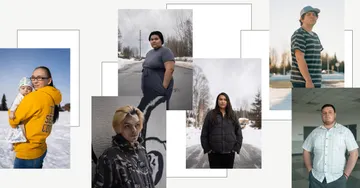“I could shoot the nuts off a mosquito at a hundred yards.” It was the kind of thing my father, a retired Master Gunnery Sergeant in the Marines, was fond of saying about his once-expert marksmanship. Ironically, for all of my youth, guns were off-limits, though they were a major part of my father’s life and, subsequently, my imagination.
It wasn’t until I was in my thirties and doing research for my forthcoming novel that he finally took me to the range. I fired a Taurus Judge that day—a .45-caliber revolver that doubles as a shotgun—a semi-automatic rifle, and another handgun. Turns out I was pretty good, though I figured the mosquitos were probably safe.
My wife and I started going to the range together too. Initially, we rented our guns, but it quickly became clear that wasn’t cost effective. After just a handful of visits, we’d have spent enough to pay for our own gun, so we began to discuss the possibility of buying one. I got my license, and my wife bought me a sleek and reliable 9 mm Glock 17 for my next birthday, along with a gun safe, though we don’t have children living at home.
The gun safe was especially important because I have a mental illness.
I’ve been on a rotating cocktail of selective serotonin reuptake inhibitors (SSRIs) for many years to control both my depression and anxiety. Before them, I spent far too much of my time trying to ignore the awful little voice in my head encouraging me to drive into oncoming traffic. My mental health is currently well controlled, but that hasn’t always been the case, and sometimes, as I’m acutely aware, the medications lose their effectiveness.
We came to an agreement: I would never have immediate access to the gun while I was alone. My wife would set the combination and would be the gatekeeper for my new, matte-gray G17. Now don’t get me wrong, short of defending my life or that of my family’s, I could never conceive of a scenario in which I might use this weapon to take another life. But what about my own?
While certainly not likely, especially while effectively medicated, I remember the urgency and persuasion of that inner voice all too well. I also know the statistics — more than 60 percent of all gun deaths in America are suicides, and roughly half of all suicides in the U.S. are committed with a gun. In this case, it is probably more likely that I’d take my own life than that I’d ever need to use it for self-defense. This is, unfortunately, a consideration I had to weigh, and we therefore enacted this failsafe.
After yet another 17 people were tragically killed in a mass shooting in Parkland, Florida, last week, the conversation surrounding gun control and mental health has reached a critical mass. “It’s not about the guns, it’s about mental illness,” many say. It’s a refrain almost as common now as, “Guns don’t kill people; people kill people,” and “Taking away their guns won’t do any good. If they really want to do it, they’ll just find another way.” Meanwhile, my gun is locked securely in my safe, protecting me from myself.
If I really wanted to take my own life, there are dozens of ways I might do it: pills, carbon monoxide, razor blades, the bathtub. Still, the only thing I lock away is my gun. Why? Because it is the easiest way. It is accurate, quick, and largely foolproof. My gun is the only thing in the house that is expressly designed to kill, and I lock it away for all the same reasons that men (and they’re almost always men) use guns to shoot up and terrorize schools and other venues across the country: because it is the most effective, deadly method available.
It should be noted that there is no established causality between mental illness and gun violence. In fact, a recent analysis of more than 200 mass killings revealed that only 22 percent of perpetrators could be considered mentally ill. But, despite all prevailing evidence to the contrary, mental illness is still the scapegoat of choice. And in the process of blaming mental illness for these tragedies, the nearly 20 percent of Americans suffering with a wide-array of psychiatric disorders are further stigmatized.
It’s impossible to point to just one thing at the heart of the gun violence epidemic in America. But in a society with more guns than people and with assault weapons nothing more than a few days and a few hundred dollars away, it’s safe to assume at least part of the problem is access. If even I, given my history of depression, know my gun is the most dangerous item available to me, you can damn well bet that those planning maximum carnage know that too.
So while many contend “guns don’t kill people,” the people who wield them know they’re far more likely to be successful — and therefore deadly — with a gun than any other option available to them. And maybe if those guns weren’t so readily accessible, we’d all be a little less likely to die by them.
Daniel “D.J.” Schuette is an author currently residing somewhere amid the cornfields and wind turbines of Iowa. His work covers a variety of genres, from dark thrillers, to horror, to YA fantasy and beyond.
